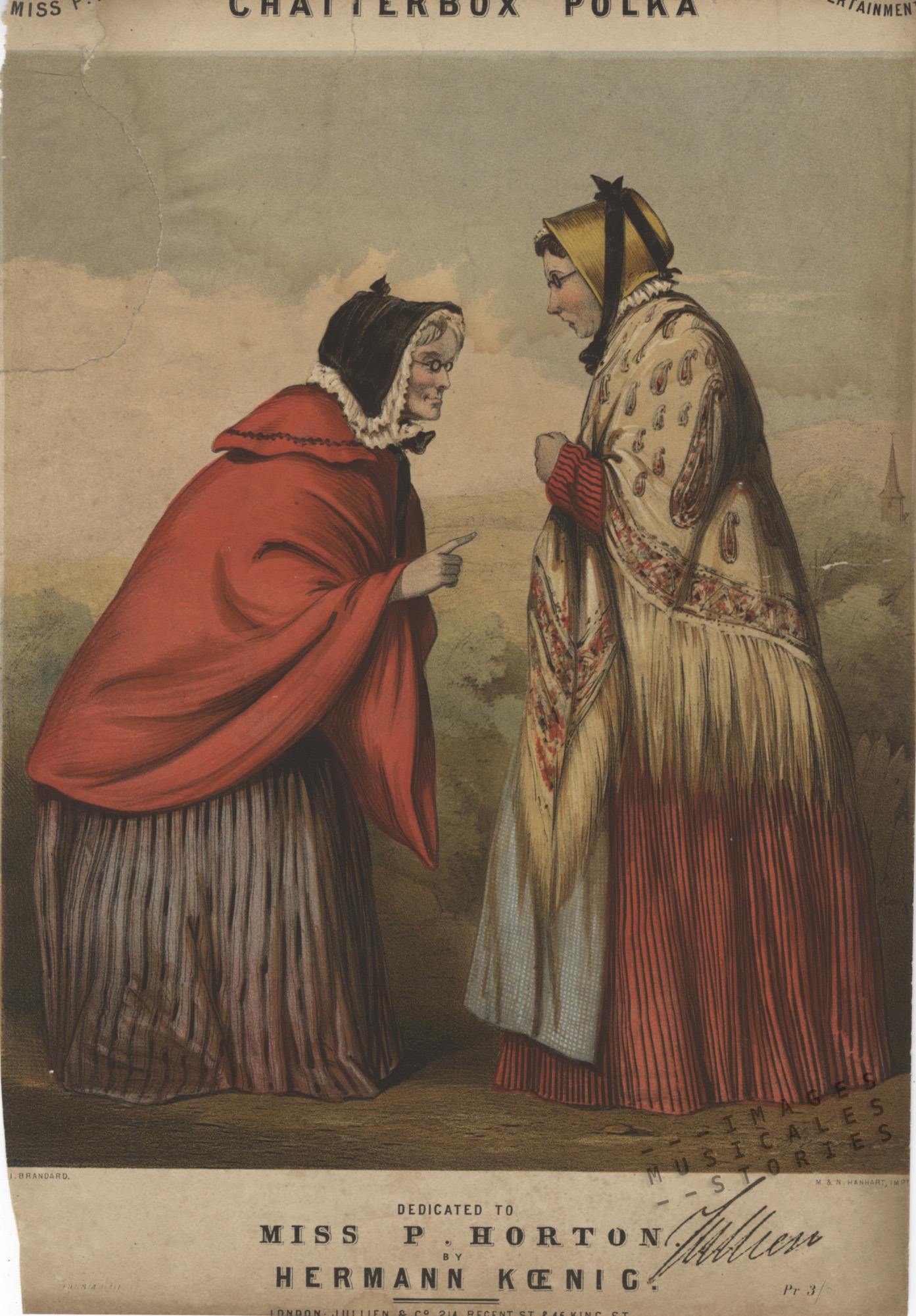
The British used to sing about almost everything. Even about chatterboxes. The two girls on the cover above, apparently liked their bit of gossip. But so did the French ladies on the cover for the Polka des Commères (commère being the French word for gossip).
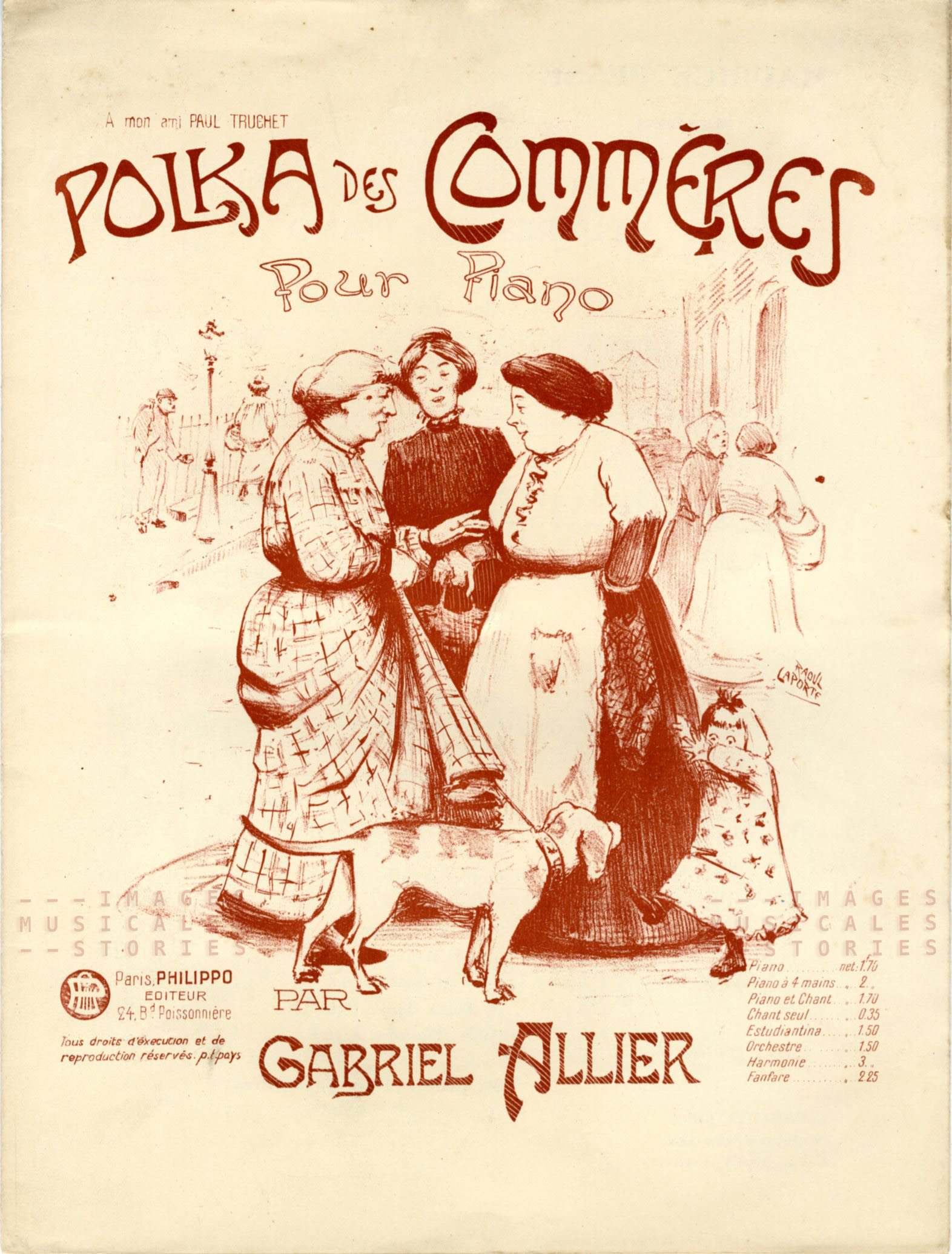
The French have another beautiful word for a chatterbox: une pipelette.
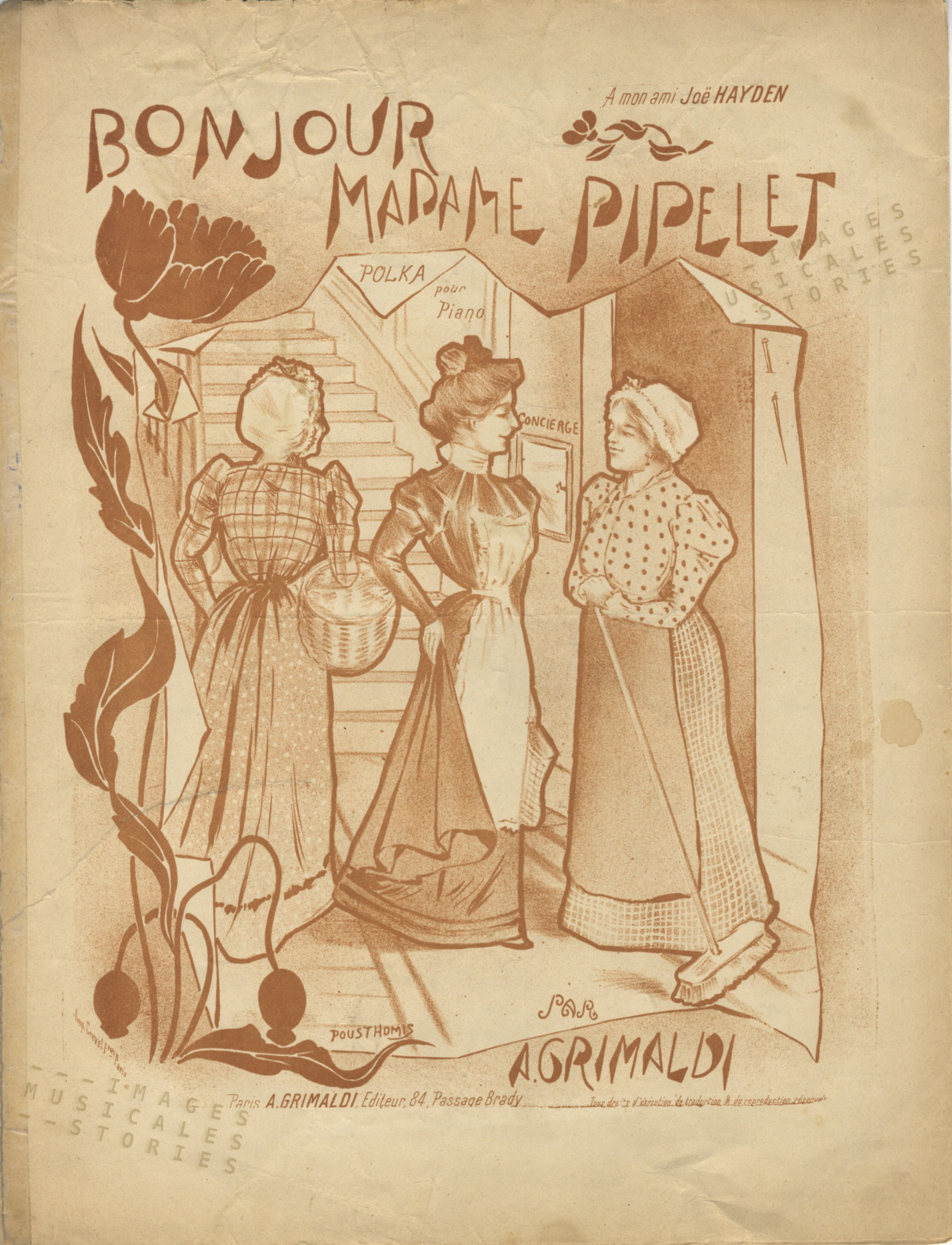
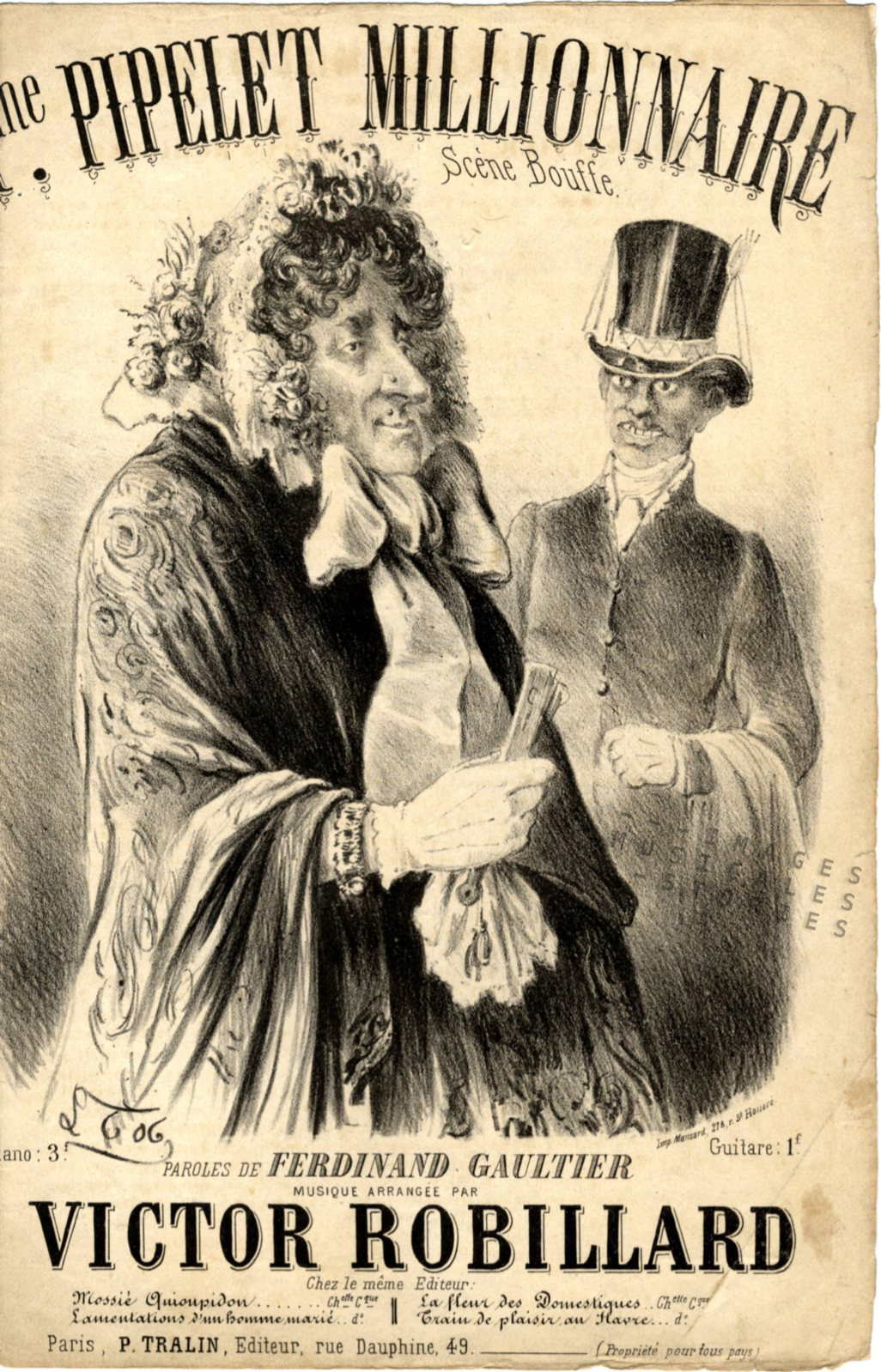
The French word pipelette (feminine) or pipelet (masculine) comes from a character in the novel Les Mystères de Paris (The Mysteries of Paris) by Eugène Sue (1804-1857). Madame Pipelet is the wife of a caretaker. She talks too much and has an unhealthy interest in other peoples private lives. The word pipelet(te) is now used to indicate a caretaker or concierge and by extension a chatterbox or a gossip.
Eugène Sue himself introduces Madame Anastasie Pipelet as follows:
‘When Rodolphe ventured into this den, Monsieur Pipelet, the porter, momentarily absent, was represented by Madame Pipelet: seated near an iron stove which was in the middle of the room, she appeared to be listening to the boiling of the pot. The French Hogarth, Henri Monnier, has so admirably stereotyped la portière that we will content ourselves by begging the reader, if he wishes to figure to himself Madame Pipelet, to recall to his mind the most wrinkled, the most pimpled, the most niggardly, the most ragged, the most quarrelsome, the most venomous of portières immortalized by this eminent artist.’
Thankfully the Bibliothèque Nationale satisfies our curiosity and shows us Monnier’s portière for what she is: ready to quarrel!
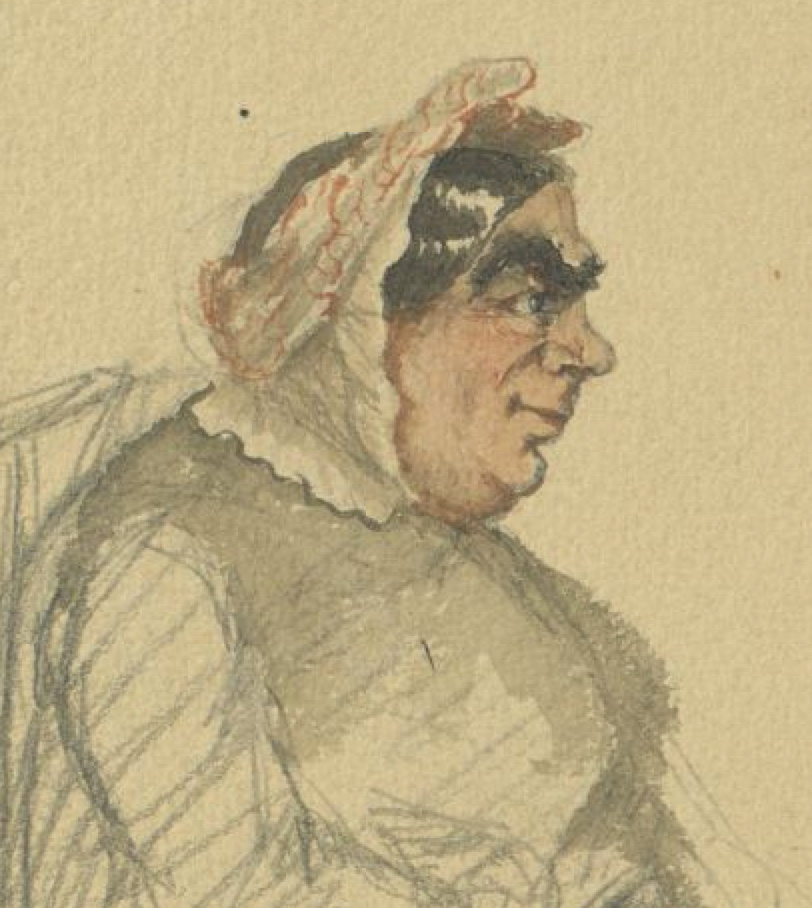

Another Pipelet.
(source: Musica Ornata, G. Fanelli; Cantini Editore, Firenze, s.d.)